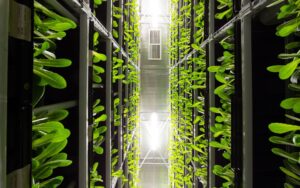
July 5th, 2017; Inside Climate News
The New York State Comptroller, Thomas DiNapoli, is helping direct stockholders’ resolutions to fight climate change using tools built by a nonprofit organization.
Ceres, a sustainability nonprofit organization with revenue of approximately $10 million, “engages institutional investors and corporate leaders to address social and environmental challenges through the integration of sustainable practices in business operations and other company decision-making.” Its board consists of comptrollers, leading climate experts, state treasurers, and lawyers from across the country. They track sustainable resolutions and provide resources about sustainable supply chains to shareholders who may be interested.
DiNapoli administers the pension fund of New York, whose $192 billion in assets makes it the third largest in the U.S.
“There are many products consumers enjoy daily that suppliers produce in ways that destroy rainforests and promote climate change,” DiNapoli said. “More and more companies recognize that by taking steps to buy palm oil or soy from suppliers that do not contribute to deforestation, they are promoting better environmental practices and protecting their shareholder value.”
This year, shareholder resolutions have become the new behind-the-scenes advocacy movement, with DiNapoli leading the charge. He started with oil companies: 62 percent of Exxon shareholders voted to demand disclosure of risks to the climate. Two-thirds of Occidental shareholders voted to require the company to produce a climate impact assessment.
Now the focus is on food: DiNapoli led an attempt to have Domino’s Pizza commit to a deforestation-free supply chain. It did not win the needed votes, but DiNapoli and Ceres are not done.
Inside Climate News reports,
The number of climate-related resolutions filed with food and beverage companies is up from 12 in 2011 to 131 this year. Of those, most were focused on deforestation linked to supply chains—from the production of palm oil, beef and soy—as well as climate change and animal welfare. Resolutions were filed with 44 companies over that period.
Sign up for our free newsletters
Subscribe to NPQ's newsletters to have our top stories delivered directly to your inbox.
By signing up, you agree to our privacy policy and terms of use, and to receive messages from NPQ and our partners.
The group released a guide last week for food company investors that illustrates the climate-related risks that each of eight commodities represents to supply chains and businesses. (The companies include packaged food companies, agricultural producers, retailers and restaurants, among others.) The guide also looks at issues beyond but related to climate change, including water use and pollution, as well as social impacts, including land rights and working conditions.
Ceres tracks shareholder resolutions in publicly traded companies, with an eye to the increasing awareness on the consumer side.
“We wanted to arm investors with better information when they engage companies on these issues,” Brooke Barton, senior director of the water and food programs at Ceres, told Inside Climate News. “The risks are mounting—whether it’s climate change or water scarcity or human rights abuses—and investors need a one-stop shop.”
Financial firms such as BlackRock, Vanguard, and Fidelity have put climate disclosure language in their mix of investments. Former New York Mayor Michael Bloomberg chairs an industry group which has created a framework to help corporations reveal climate-related risk to insurance underwriters, lenders, and investors. The model took two years to put together and strives for a consistent framework in language and data delivery to encourage companies to participate. The Task Force on Climate-Related Financial Disclosures is supported by more than 100 corporations.
Food industry votes have not yet achieved the success that shareholders in the giant oil companies have had, but it is only the beginning. The ExxonMobil climate risk shareholder vote failed for a few years before this year’s success, demonstrating the momentum of the sustainability movement.
Climate-related concerns make up a significant part of 52 percent of shareholder proposals, included in the environmental and social justice votes, according to a 2015 analysis done by EY.
A 2015 survey by CDP, formerly known as the Carbon Disclosure Project, found that 90 percent of 97 food, beverage and tobacco companies—representing 822 institutional investors and more than a third of the world’s invested capital—said their businesses were vulnerable to the impacts of climate change.
Whether by conscience or market pressure, corporations are paying more attention to issues that matter to their markets and the in many cases pressure is coming from several directions. For instance, last year, after it was revealed that palm oil giant IOI Group was not hitting the standards for producing sustainable palm oil, Unilever, Kellogg, and Nestle stopped buying from IOI. This follows an important trend we have been tracking at NPQ.—Marian Conway













